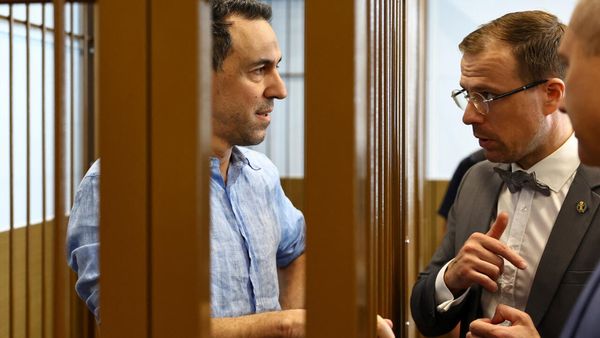
My wife and I are expecting our first child later this year. We’re going through the gamut of emotions common to all new parents – a heady mix of excitement, terror, and above all a huge and ongoing dose of extreme confusion. In the decades that I’ve been alive on this earth, I’ve never before been confronted with so many choices for every decision, nor a more diverse array of advice on what to choose.
As something of a scientific factchecker, this plethora of parenting options has been a really fascinating adventure for me into how complicated the evidence often is for the advice that new parents get.
One of the first things I investigated was pregnancy vitamins. If you go to any supermarket or pharmacist, you’ll see an endless parade of supplements that various companies wish to sell you which promise good health for you and your baby. However, from a scientific perspective, there are only a handful of things people regularly need to supplement during pregnancy – indeed, the US Centre for Disease Control only has one thing on the list: folic acid.
But pregnancy vitamins were just the start. Next came pregnancy food recommendations. One of the main reasons that pregnant women are told to avoid some foods, like raw seafood and soft cheeses, is because of the risk of listeriosis and other bacterial infections. Based on public health data, pregnant women make up about one-fifth of all those hospitalised for listeriosis, which sounds like a terrifying figure and well worth the effort of avoiding brie for nine months.
But if you look at the official figures on listeriosis for Australia, it turns out that while the relative risk of listeriosis is very high for pregnant people, the total number of cases is incredibly low – just 60 to 90 a year. And while pregnant people do make up a disproportionate number of these listeria cases, that amounts to somewhere in the region of 5 to 10 cases of listeria in pregnancy across Australia each year, against a backdrop of more than 300,000 live births recorded. Rates of listeriosis in pregnancy have also reduced in previous decades, likely due to the promotion of safe eating practices in pregnancy and improvements in food safety across the board.
On top of that, I could not find a single study that addresses the specific risk that certain foods have. Whether you’re told to avoid, say, feta cheese, seems to depend more on the national body you listen to, although there are some prohibitions that are fairly universal – everyone advises against eating raw meat, for example.
I’m certainly not saying you should ignore the recommendations – obviously, the best advice is to listen to your doctors and midwives when it comes to pregnancy care. But given this sort of question is very common and almost ubiquitous across society, it’s amazing how hard it can be to find strong evidence for a specific approach. Most of the guidelines don’t even cite scientific studies beyond discussing the dangers of listeriosis in pregnancy.
This morass of evidence only gets worse once the baby is born. Most vitamin and food preparation instructions for pregnant people are pretty similar, but parenting advice is wildly varied. If you are going to use bottles to feed your baby at some point, you’re going to have to choose between dozens of similar-looking formula options, all with different claims supported by minimal evidence. There are numerous competing opinions from different public health agencies about how long you should sterilise your baby’s bottle, or if you need to do it at all.
Given all this conflicting evidence, all I can say is that I’m unsurprised at how overwhelmed new parents usually feel. I was overwhelmed looking into the recommendations for a single topic last week – epidurals and their impact on labour. I can only imagine how much more daunting the endless parade of options becomes once your baby is born.
I’m at the start of my parenting journey; I’m not going to sit here and tell you everything you’ve heard is wrong. But as someone who checks scientific statements regularly, I have found it incredibly difficult to get a simple answer to any parenting question I’ve looked into. Even the well-researched problems, like the best place to give birth, seem to have inconclusive answers.
Perhaps there is no one “best” approach to producing offspring that will make their life as healthy and happy as possible. I’m sure when the baby comes, we’ll muddle through the experience just like the generations before us, but I do wish there was a randomised trial that I could look at which would tell us exactly what to do.
Gideon Meyerowitz-Katz is an epidemiologist working in chronic disease in Sydney’s west, with a particular focus on the social determinants that control our health







